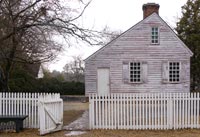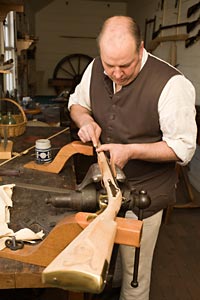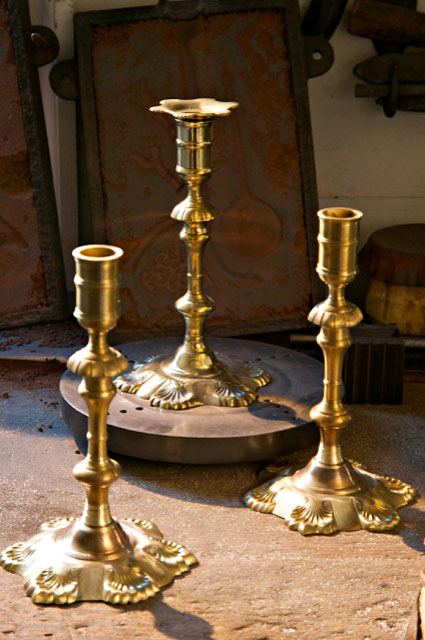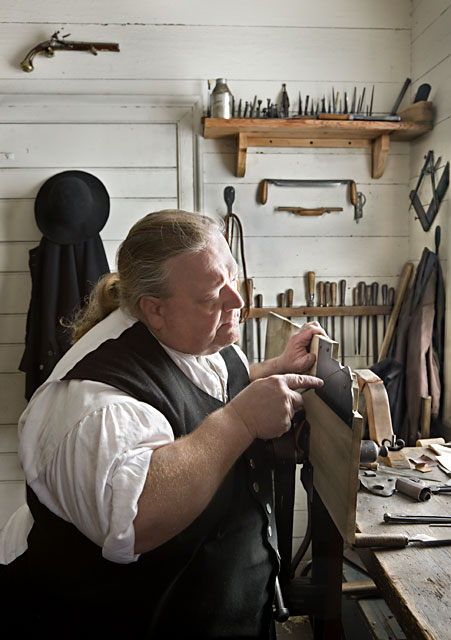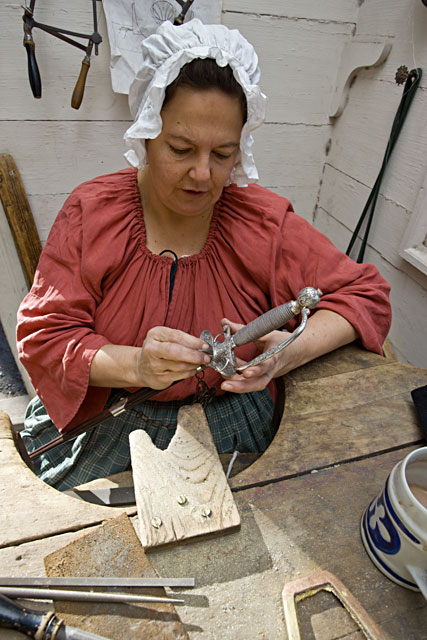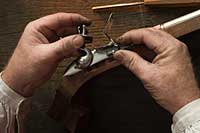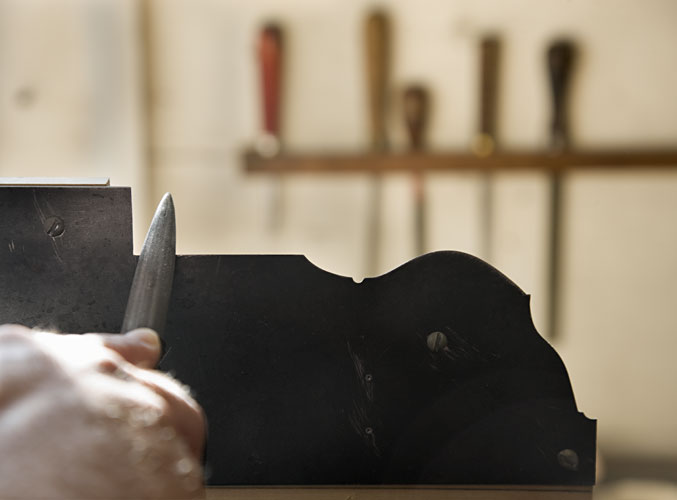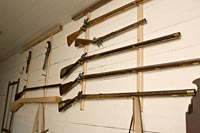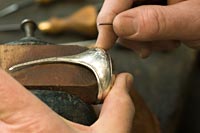Page content
Geddy Gunsmith and Founder
A Williamsburg family tradition
William and David Geddy advertised in the Virginia Gazette that they were carrying on the gunsmith’s, cutler’s and founder’s trade. These two brothers were following in their father’s footsteps when they served an apprenticeship to their father James Geddy Sr. Their newspaper ad ran on August 8, 1751.
David and William Geddy advertised their trade in Hunter's Virginia Gazette, August 8, 1751.
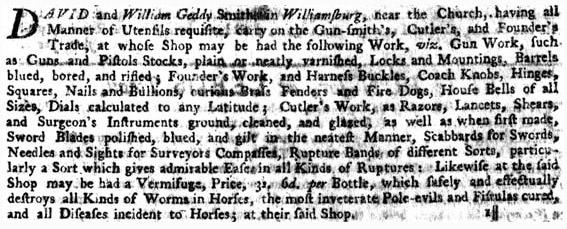
Gunsmiths master many trades
To make all the parts of a firearm requires some knowledge of many trades. Making a gun barrel and a flintlock requires the ability to forge iron and steel into shape. The pieces of a lock are filed and fitted together so they function. The parts are hardened and tempered for wear resistance. The stock is made from one piece of wood — usually maple, walnut or cherry. The same tools any woodworker would use are used to inlay the metal parts into the stock and shape the stock to final size. Firearms are usually decorated with relief carving on the stock and engraving on the metal surfaces.
The Geddy Foundry
The gunsmith also has to have the ability to cast metals such as brass, bronze and silver to form the butt plate, trigger guard and side plate. Casting is accomplished by packing a small amount of dampened sand and clay into a flask. A pattern carved of wood is pressed into the sand. Another sand-packed flask is placed on top. When the halves of the mold are separated, the pattern is lifted and leaves a void in the mold.
Channels are cut into the sand so the metal will flow into the void. The flask is put back together and molten metal is poured into the mold. When the metal cools and turns solid the mold is broken apart and the casting removed for further filing and polishing. These same techniques can be used to make other cast items as well—like furniture hardware, harness fittings, and candlesticks.
With all of these skills a gunsmith and founder could make and repair other objects that people would want to purchase, using the same technology used in making firearms.
Today in The Revolutionary City
Today the gunsmiths and founders carry on their trade at the Geddy site, near the center of The Revolutionary City, using the same technologies as their 18th-century predecessors.
Learn more:

